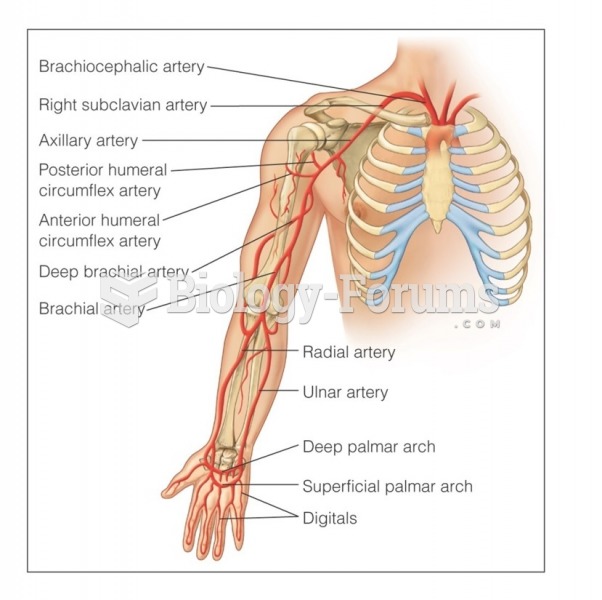|
|
|
People with alcoholism are at a much greater risk of malnutrition than are other people and usually exhibit low levels of most vitamins (especially folic acid). This is because alcohol often takes the place of 50% of their daily intake of calories, with little nutritional value contained in it.
More than 2,500 barbiturates have been synthesized. At the height of their popularity, about 50 were marketed for human use.
A seasonal flu vaccine is the best way to reduce the chances you will get seasonal influenza and spread it to others.
More than 34,000 trademarked medication names and more than 10,000 generic medication names are in use in the United States.
Nearly 31 million adults in America have a total cholesterol level that is more than 240 mg per dL.







